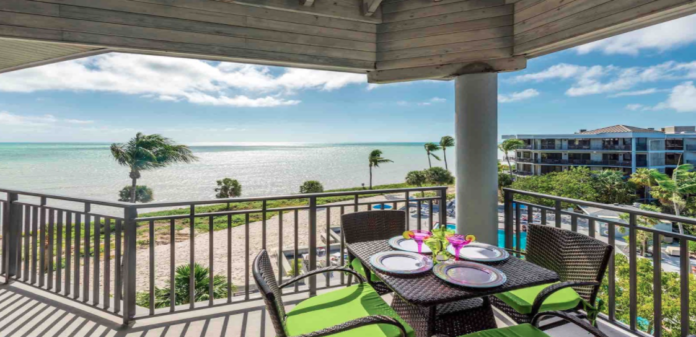
Invasive, insatiable and largely unstoppable, monthly vacation rentals are the Burmese pythons of Key West, devouring the city’s housing inventory and devastating its workforce to the brink of extinction.
Key West city officials on May 3 unanimously blamed the city’s housing crisis on the proliferation of vacation rentals. But unlike pythons, vacation rentals are protected by law. The Florida Legislature won’t let city or county goverments eradicate invasive vacation rentals or control their population to any meaningful degree.
At their meeting May 3, city commissioners received a harsh reminder from City Attorney Shawn Smith that the state prohibits local governments from restricting vacation rentals unless a local law was in place prior to 2011. Key West did have such a law back then, but it only addresses transient, or short-term, rentals of less than a month.
Years ago, officials recognized the threat that transient (nightly and weekly) rentals pose to residential neighborhoods and the overall community fabric. They capped the number of transient rental licenses, and refused to issue any additional ones. They also passed new zoning laws to keep transient rentals out of residential neighborhoods.
Monthly rentals weren’t considered a problem 10 or 15 years ago. But as travel and tourism changed over time, the same rentals now pose the greatest threat to the island’s workforce.
Whereas transient rentals disturbed residents, monthly rentals displace them. Buildings that once housed three apartments occupied by six or eight local workers have been remodeled and replaced by luxury, single-family vacation homes that now rent for $10,000 to $14,000 per month.
The city’s pre-existing transient rental limits are grandfathered in under current state rules, and will remain valid as long as they’re never changed in any significant way, City Attorney Shawn Smith told the commission on May 3. If they attempt to tighten or expand any pre-existing rental restrictions, the state will invalidate the previous rules, Smith said.
“What we have is what we have,” he said.
And what we have is an unchecked spread of monthly vacation rentals, including AirBnB and VRBO listings, with almost no authority to control, prevent or reduce them.
Property owners who want to offer nightly or weekly rental cannot obtain a transient rental license from the city, but rather must buy an existing one from a private owner, usually for at least $500,000.
Monthly rentals are a different story, as Smith reminded the commission on May 3. Any property owner, anywhere in Key West, can go to City Hall, pay $21 for a business license and legally offer monthly rentals, whether through a real estate agent, property management company, AirBnB or VRBO.
There are no restrictions on monthly vacation rentals, Smith repeatedly emphasized to correct the persistent misperception that illegal, unlicensed vacation rentals are the primary problem. Monthly rentals are not illegal in any neighborhood and require only a $21 annual license. Their prevalence is the problem.
But what about all the rental listings on AirBnB? Surely they’re not all licensed? some commissioners asked.
It’s true, Smith said. Many advertised properties are not properly licensed, he said, but again made the distinction between transient and monthly rentals, and the license that each requires.
In the case of illegal transient rentals, property owners roll the dice and operate without a hard-to-get transient rental license, saving $500,000 or more. They reap huge profits until caught by investigators, code officers or frustrated neighbors. Such violators can and should be investigated, fined and criminally prosecuted, Smith said.
When it comes to monthly rentals, though, an property owner only saves $21 by operating without the required license, Smith pointed out.
Such violators are typically just unaware of the license requirement, Smith said. There’s no reason or financial benefit for anyone to conduct unlicensed monthly rentals, because anyone can offer them legally for $21 a year.
Anyone cited for offering monthly rentals without the $21 license can remedy the violation the same day at city hall, Smith said.
But, he added, heightened enforcement efforts and higher licensing fees could help, though not cure, the problem. Smith also said the commission would need to support additional code and police officers come budget time for these increased investigative and enforcement efforts to be effective.
Key West is not alone in its crisis, officials agreed. Miami Beach is working on some legislation “that we can learn from,” said Smith, who’s watching it closely.
Commissioner Jimmy Weekley wanted to know if cities could file some sort of class-action lawsuit against the state for prohibiting local restrictions that are destroying communities. Commissioners Sam Kaufman and Billy Wardlow, who represent New Town districts, said the vacation rental onslaught is now affecting neighborhoods that have never before been impacted.
Smith promised to draft a potential ordinance in the coming month or so for commissioners to consider that would raise the $21 fee and go as far as the state will allow in terms of fines and enforcement.
















